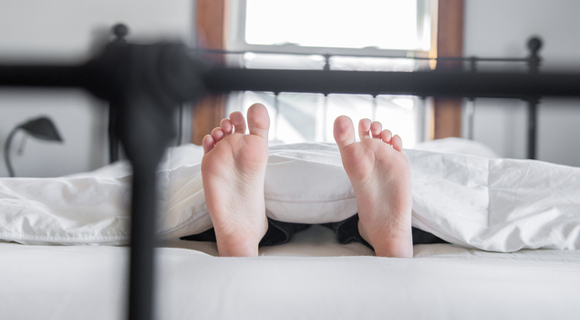
Better sleep for better health
You Snooze, You Win. Sleep Well.
When was the last time you got a great night’s sleep? If you routinely have difficulty getting to sleep or staying asleep, your life can start to look pretty dreary.
Side effects of insomnia can include problems such as anxiety, depression, and fatigue. A healthy dose of deep sleep is important for your overall health. Plus, being well rested can make the world look brighter and prepare your mind and body to face the challenges of your day.
Can’t nod off at night?
Most of us have trouble getting to sleep from time to time. It’s likely not a big issue unless it’s causing extreme daytime tiredness (napping and driving is even worse than texting and driving). There are 10 tricks you can try over the next month to see if your sleep improves:
- Watch the clock. Get up and go to bed at around the same time each day. No exception for the weekends!
- Nip naps in the bud. If you must sleep while the sun is up, take a 20-minute power nap. Don’t nap within 4 hours of bedtime.
- Set good bedroom boundaries. Keep work, TV, and other activities out of your bedroom. This sanctuary is only for sleep and sex.
- Give your bladder a break. Stay well hydrated, but drink most of your fluids well before bedtime to cut down on late night trips to the toilet.
- Don’t keep your stomach awake. Don’t eat a heavy meal right before bed. If you are hungry, enjoy snack time 1-2 hours before sack time.
- Avoid interference. Cut back or eliminate caffeine, tobacco, and alcohol, as these substances can keep you awake. So can some medicines (check with your healthcare provider to see about managing this side effect).
- Exercise good sense. Moderate physical activity for 30-60 minutes three times a week can be good for your health. But your workout should happen at least four hours before your bedtime.
- Relax yourself to sleep. If you’re still tossing and turning after half an hour in bed, get up. Do something relaxing, such as reading a book, listening to music, doing guided imagery, or taking a warm bath. Don’t watch TV or get on the computer.
- Get the right look and feel. Ensure your bed, linens, and PJs are soft and comfortable. Turn out all the lights and remove electronics from the bedroom.
- Plan for a peaceful night. Try to avoid stressful situations, conversations, and activities before lights out.
Are you asleep yet? If the tips above don’t work after 3-4 weeks, it’s probably time to see a doctor. If you are a Kaiser Permanente member, try our free online program to help improve your sleep schedule: HealthMedia® Overcoming™ Insomnia.





